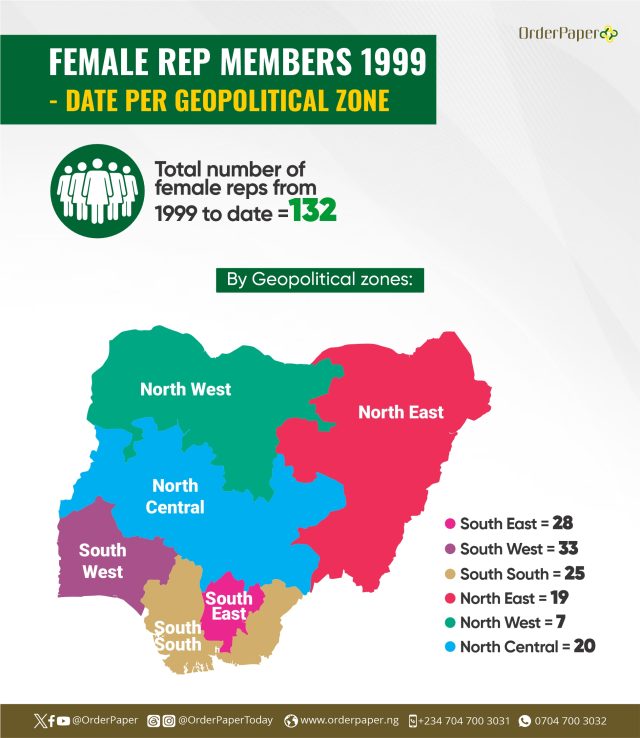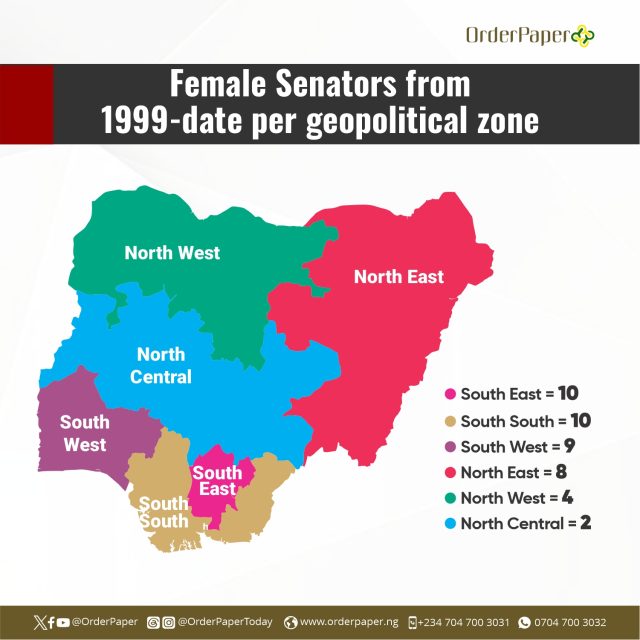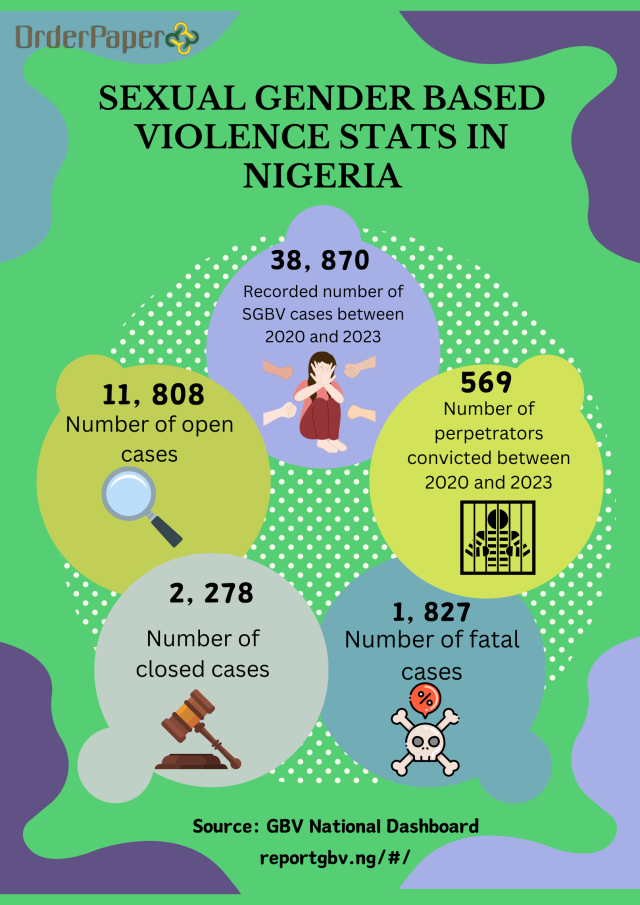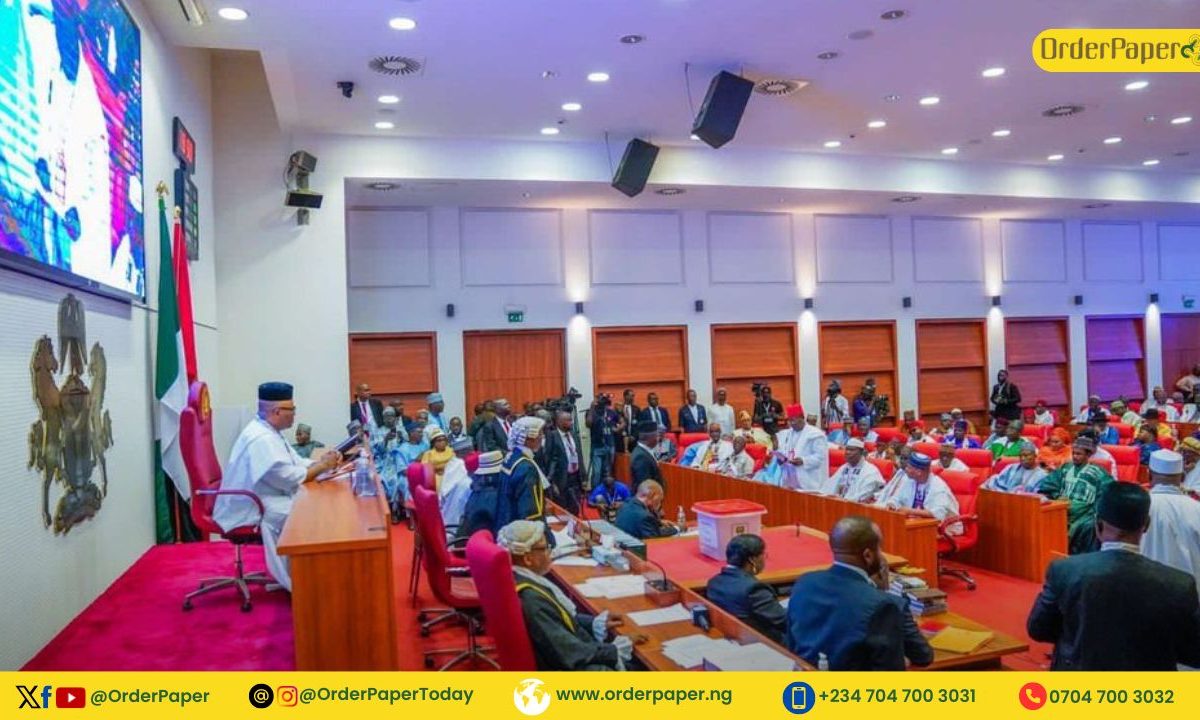This week’s GESI tracker addresses the House’s suspension of the Samoa Agreement over LGBTQ+ fears, progress on the VAPP Act, and a gender bill to increase women’s seats in parliament 74.

Much ado about the Samoa Agreement
The Samoa Agreement has been a news headline this past week following controversies on some unclear clauses. The agreement is a framework for a partnership deal between the European Union (EU) and the Organisation of African, Caribbean, and Pacific States (OACPS). It was officially signed on 15 November 2023 by the EU and its member states and OACPS members in Samoa, while the Nigerian government joined in June 2024. However, a media publication that the agreement contained clauses that could legalise Lesbian, Gay, Bisexual, Transgender and Queer+ (LGBTQ+) rights in Nigeria, thereby contradicting the existing same-sex marriage prohibition act, sparked publicbacklash. The report alleged the government was motivated to sign the agreement to benefit from a $150 billion funding from the EU. The government refuted the claims through the Minister of Budget and Economic Planning, Abubakar Bagudu. At plenary this week, the House of Representatives waded in by demanding suspension of the agreement in a move to quell public agitation.
Samoa and GESI…
Regardless of the controversies, the Samoa agreement highlights Gender Equality and Social Inclusion (GESI) principles to ensure equitable participation and benefits for all individuals. It entails recognising and addressing gender disparities, promoting women’s empowerment, and protecting marginalised groups. It prioritises diverse populations’ needs and contributions through targeted policies and programs. Also, mechanisms for meaningful participation of women and marginalised groups in decision-making and capacity-building initiatives are crucial. This integration fosters inclusive development, advancing social justice, equality, and human rights.

Female representation in parliament…
Since the return to democratic rule in 1999, female representation in Nigeria’s National Assembly has been a journey of resilience and gradual progress. Despite the significant strides made, women remain vastly underrepresented in both the Senate and the House of Representatives. Over the years, their numbers have fluctuated, reflecting the persistent challenges of gender bias, cultural barriers, and limited access to political networks. Efforts to increase female participation through advocacy and legislative measures have seen some success, but much work remains to achieve true gender parity. The ongoing struggle highlights the need for sustained reforms and societal change to ensure women can fully participate in shaping Nigeria’s legislative landscape. In the 7th, 8th, and 9th assemblies, women accounted for only 6.4%, 6.1%, and 2.7% of the Senate, respectively, and 6.4%, 3.05%, and 4.7% of the House of Representatives. The numbers for the 10th senate have moved backwards as it has dropped from seven female senators in the 9th assembly to four female senators in the 10th. A bill to address this lack of fair gender representation has come before the National Assembly several times, most recently in the 9th assembly, where it was rejected. Fast-forward to the 10th Assembly, the bill was passed for a second reading before the House this week.

Updating the VAPP Act…
The Violence Against Persons (Prohibition) Act 2015, often referred to as the VAPP Act, is a landmark legislation in Nigeria designed to address and eliminate various forms of violence and human rights violations, particularly against women and children. This legal framework prohibits acts such as rape, domestic violence, harmful traditional practices, and trafficking of persons, outlining specific offences and corresponding penalties to ensure accountability.

Despite its progressive framework, significant gaps and challenges persist in its implementation, necessitating urgent reforms. The VAPP provisions aim to promote inclusivity and protect vulnerable populations, yet the societal and institutional barriers hinder their full realisation. With the evolving nature of GESI, there is a pressing need to strengthen the VAPP Act through comprehensive reforms that enhance enforcement mechanisms, provide adequate resources for support services, and promote widespread awareness and education. These reforms should also address integrating GESI principles at all levels of government and society, ensuring that marginalised groups receive the protection and justice they deserve. By doing so, Nigeria can create a safer, more equitable environment for all its citizens, fostering sustainable development and social cohesion. At plenary this week, the Senate took up the repeal amendment of the VAPP 2015 Act.




